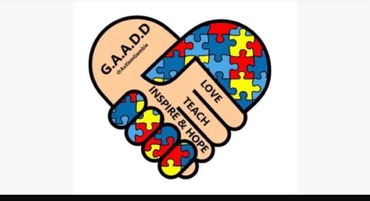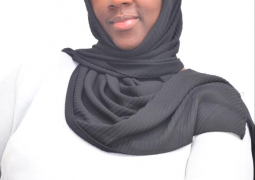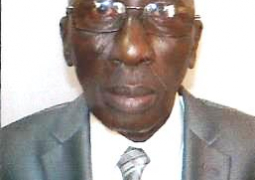
"Sometimes, I have to lock my son in the house to protect him from the maltreatment he faces from others," she laments. Her son’s health deteriorates whenever he misses his medication, yet the bullying persists. "He is beaten, rejected, and pointed at by his peers. They don’t even want to play with him. It’s as if they have forgotten he is human and has rights," Isatou dejectedly disclosed.
Despite the relentless bullying and isolation, she finds solace in the remarkable improvements her son has made, thanks to the dedication and support of his school.
According to a research by the World Health Organisation (WHO), in The Gambia, autism remains under-recognised and often misunderstood, with stigma and misconceptions persisting within communities.
The spectrum disorder affects 82 out of every 10,000 births in the country and 394.95 out of every 100,000, ranking The Gambia as the 61st most affected nation out of 198 countries, the WHO 2023 research states. “These are not mild numbers by any chance and paint a simple picture that the dedication to mastering autism as a relevant concern affecting unsuspecting children and parents must skyrocket and materialize into impactful efforts.”
However, because autism is a spectrum disorder, each autistic person has a distinct set of strengths and challenges that they face, the study found out, stating: “This is to say that how they learn and think can differ from highly-skilled (which is high-functioning autism, also known as Asperger’s syndrome where the child is quite verbally and intellectually adept), to severely challenged (which is low-functioning autism where the child is mostly unresponsive), which is why while some of them might require significant assistance in their daily lives, others may need less support and in most cases go on to live entirely independent lives.”
Organizations like the Gambia Association for Autism and Developmental Disabilities (GAADD) are striving to change this by raising awareness, advocating for children and their families, and offering services that were previously unavailable.
GAADD started a pilot classroom in September 2021 with individualised educational plans to cater to the specific needs of each child. They also aim to build a special needs school and a resource centre, which would be the first of their kind in the country.
These efforts are designed to help families understand autism, seek timely support, and provide an environment where children can thrive, the study stated. “Nonetheless, there is a need for more structured efforts, funding, and governmental support to expand these services and make meaningful changes for children with autism in The Gambia.”
Maimuna Baldeh, Supervisor at GAADD, highlighted that children with autism often face challenges within their communities and are misjudged by society. Instead of being understood and supported, these children are frequently neglected, growing up without opportunities to realise their true potential, she said.
She urged parents to support and nurture children with autism so they can contribute meaningfully to their communities. She also announced that GAADD will be conducting outreach programs to raise awareness on the rights, special care, and treatment needed for children living with autism.
Besides one of the major obstacles faced by children with autism in The Gambia is the stigma associated with developmental disabilities, GAADD said.
Many people confuse autism with mental instability, leading to ostracization of affected children and their families. Additionally, there are few professional resources and support systems in place for early diagnosis and intervention.
Omar Secka, a teacher at GAADD, shared that the school is currently supporting three children with autism spectrum disorder, focusing on various aspects of their development to help them achieve self-independence and self-reliance in the future. He mentioned that some of the children struggle with speech issues, while others show signs of severe autism.
The school addresses the unique needs of each child by providing individualised support and attention based on comprehensive assessments.
Mr Secka explained that the school conducts regular assessments to identify the specific needs of each child, which guides their intervention strategies.
He also stated that he has been organising activities outside the classroom, such as visits to the beach or social outings, to promote social interaction, learning, and a sense of direction. He referred to this approach as "transfer of learning," a method used to ensure that children have fun while learning.
He urged parents not to hide children living with autism, as it hinders their health and development. He emphasised the need to bring these children out, and show them love, care, and compassion, and help them integrate into society. “Society often stigmatizes these children, refusing to interact or play with them, which is unfair because they are human beings too,” Secka admonishes.
In his remarks, Modou Lamin B. Bah, Chairperson of the National Assembly Health Select Committee, emphasised the need for the government to prioritise the education and well-being of children with autism by expanding schools, upgrading the curriculum, and decentralising facilities across all regions to support their development.
He also called on the government to provide financial assistance to mothers of children with autism, empowering them to start their own businesses and better support their vulnerable children, as they too are valuable members of society.
In line with the such call, Hon. Bah mentioned that he is personally sponsoring the education of a child with autism to learn skills in Banjul.
In conclusion, the story of Isatou Sanyang and her child is just one of many that highlight the harsh realities children with autism and their families face in The Gambia.
Despite the existence of the Disability Act, the lack of resources, understanding, and acceptance continues to limit opportunities for these children to lead fulfilling lives.
While organizations like GAADD are making strides to support children with autism, there is an urgent need for increased governmental support, community awareness, and funding to bridge the gap in services and ensure that every child, regardless of their abilities, has access to quality education and the chance to realise their full potential.
Ending the stigma and promoting inclusion can transform the lives of countless children, giving them the chance to grow and contribute meaningfully to society. It is time for a collective effort to stand up for the rights of children with autism and create an environment where they are not just accepted but celebrated for their unique strengths and abilities.




